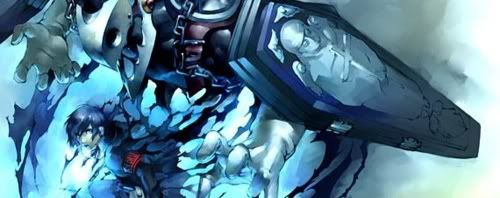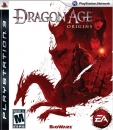De85 said:
Pristine20 said:
De85 said:
naznatips said:
Yes, they buy games. It's not that big a deal. Sony did it the entire PSone generation. I don't mind them doing it, but the problem is when developers sell their time they are selling it for what the financier wants, and what MS wants is nothing but the safe, popular, no-risk games. That's why the only RPGs they've paid for are generic mainstream ripoffs or games from the already popular franchises.
That's fine for the casual RPG gamer, but it hurts other RPG gamers because it means the companies that are getting paid stop making the games that take chances. For that reason, you'll never see a game like Valkyria Chronicles or Fragile on the 360, because it's too risky, and MS won't pay for stuff like that.
So it's great for 360 gamers that they are getting some RPGs, but it can be genuinely detrimental to innovation in the genre, and that's why you need platforms like the DS, Wii, and to a lesser extent the PS3 to get the RPGs that take chances, and truly evolve the genre.
My two bits. |
Not entirely. Mistwalker was a startup, you can't tell me that's not risky. I know it was started by the creator of FF, but past succes is no guarantee for the future.
|
Sakaguchi is the creator of FF. How's that risky? Many who have played LO keep writing about how many similarities it has to FF. I heard they even had someone called Cid just that it was spelt differently. Past success partially guarantees the future because the names of developers and frachises sell as well. Why did Dragon Quest: Swords sell so many copies if not for the name of the developer and franchise?
|
I'm not ripping on LO, in fact I think it was a great game. But even though Sakaguchi was the creator of FF it was an enormous risk because of the stigma the 360 had as the "shooter box."
Also, I still don't believe that past success has any guarantee for the future. Free Radical was made up of the people who made Goldeneye and Perfect Dark over at Rare, then turned around and delivered Haze.
As for the Dragon Quest Swords Example, I guess I need to clarify my assertion, or at least be more specific. A huge franchise name can guarantee at least moderate sales, but 95% of gamers don't have a clue what developer's names are or their past histories. They just look at whatever precedes the colon in the title, in your example Dragon Quest.
|
I don't think you really understand what a risk is to Microsoft. They don't care about losing money on their goal. Their goal was for the Japanese RPG audience, and the way to get that was to publish clones of the already popular RPGs. The way to do that was to make a studio to make them, which is EXACTLY what Mistwalker is. The sole purpose of their existence is to clone the Square-Enix RPGs.
And yes, it's true in America 95% of gamers don't know developer names, but that's not true at all in Japan. Developers are very well known, and so is Sakaguchi. He did fail to capture the Japanese audience like MS hoped, but they took no risks in the games they paid him to make. They went down the path of least resistance, and unfortunately, the least innovation.



























































